Supreme Court Agrees To Consider Copyright Case Between H&M and Fabric Designer On Validity of Registration Of Fabric Design
Following a lengthy legal battle between Unicolors, a fabric design company and H&M, the United States Supreme Court has agreed to decide on whether an inaccuracy in copyright registration invalidates a registration without the requirement to show evidence of intent to defraud.
Background
Unicolors originally filed suit against H&M in 2016 for copyright infringement arguing that H&M was selling a geometric print design allegedly bearing one of Unicolors copyrighted designs (first created in 2011). Unicolors was found guilty of copyright infringement by a jury, and in an attempt to overturn the jury’s verdict H&M filed an appeal, saying the district court erred in dismissing H&M's assertion that Unicolors' copyright was invalid, on the basis that the representation made by Unicolours in their original 400 copyright registration application (which contained 31 separate designs, including the fabric design at issue) that all the listed designs were sold to the public at the same time, thus claiming one date of first publication to be inaccurate. This was because during trial Unicolours admitted that some of the designs were actually sold to different customers at different times.
In particular, H&M challenged the validity of the ’400 Registration, claiming that at least nine of the thirty-one designs covered by the ‘400 Registration were sold separately to individual customers as confined works, and the other twenty two as non-confined. H&M argued that this was contrary to Copyright Office regulations requiring that a single-unit registration be published “as a single work,” and based on this inaccuracy, H&M asked the court to refer the registration to the Copyright Office under Section 411(b) to allow the Office to reconsider the validity of the registration.
The district court rejected this request, under the district court’s interpretation of the law, to prove the copyright invalid “due to inaccuracies in a registration requires the copyright claimant to have known its application was inaccurate, a party asserting invalidity must show some indication that the claimant intended to defraud the Copyright Office.” On this matter, the district court found Unicolors’ registration was valid because Unicolors had not intended to defraud the Copyright Office; and that H&M willfully infringed one of Unicolors’ copyright design registrations and awarded Unicolors $817,920.
On appeal, the Ninth Circuit Judge Carlos Bea, Judge Bridget Bade and District Judge Jon McCalla sitting reversed on the issue. Confirming a collection of works isn't considered "one unit" unless all of the works were first published simultaneously. Due to this inaccuracy the Ninth Circuit held that the district court was in fact required to ask the Register of Copyrights if Unicolors' application would have been refused and intention to defraud the Copyright Office was irrelevant.
With close to $1 million at stake, in its petition to the Supreme Court for a writ of certiorari, in January 2021, Unicolors has asked the Supreme Court to review the decision. The question put forward by Unicolors that the Supreme High Court will consider is: “Did the Ninth Circuit err in breaking with its own prior precedent and the findings of other circuits and the Copyright Office in holding that 17 U.S.C. § 411 requires referral to the Copyright Office where there is no indicia of fraud or material error as to the work at issue in the subject copyright registration?”
"[N]o Circuit, including the Ninth, had ever before acknowledged a “bundling” requirement, says Unicolours and that "The PRO-IP Act was enacted to stop courts from invalidating copyright registrations based on immaterial registration errors. But, the panel here did the opposite, ruling that the PRO-IP Act did not require the long-applied fraud or bad faith standard."
The case has major implications because whether a copyright registration is valid is a prerequisite for bringing a lawsuit and claiming statutory damages under US copyright law. If the Supreme court follows the judgement of the Ninth Circuit this could lead to increasing uncertainty for copyright holders seeking to rely on copyright law for the protection of their designs.
We’ll be sure to update you!

